WU Institute for Managing Sustainability
The Institute for Managing Susta![]() inability is part of Vienna University of Economics and Business – Europe’s largest educational institution for business and economics, business law, and social sciences. We conduct research and policy consulting projects on inter-disciplinary issues, such as corporate social responsibility, sustainable development strategies and indicators, sustainable consumption and production, responsible research and innovation.
inability is part of Vienna University of Economics and Business – Europe’s largest educational institution for business and economics, business law, and social sciences. We conduct research and policy consulting projects on inter-disciplinary issues, such as corporate social responsibility, sustainable development strategies and indicators, sustainable consumption and production, responsible research and innovation.
The international interdisciplinary team at the Institute for Managing Sustainability has built up extensive expertise over the last 20 years in research projects on issues of sustainability impact measurement and performance analysis of CSR in companies (e.g. FP7 GLOBAL VALUE, IMPACT), as well as evaluating research and innovation performance and impact on society (e.g. High Level Expert Group for the FP7 ex-post evaluation; Network analysis of Civil Society Organisations’ participation in EU Research; FP7-4-SD.eu – Monitoring the contribution of FP7 funded research to sustainable development).
The Institute for Managing Sustainability is also collaborating with the WU Institute for Gender and Diversity in Organisations and will draw on their expertise to make sure gender aspects of Responsible Innovation are appropriately integrated.
De Montfort University
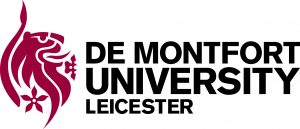 The Centre for Computing and Social Responsibility (CCSR) at De Montfort University (DMU) is the largest research centre of its kind in the UK and one of few in Europe and the world. The CCSR is a leading institution in the discourse on Responsible Research and Innovation (RRI) and has been involved in several European Commission and UK Research Council funded projects on RRI as coordinator (RESPONSIBLE-INDUSTRY, ETICA, FRRIIICT), work package lead (including RESPONSIBILITY, CONSIDER and GREAT) and leading ethics experts (including the Human Brain Project and 3D-Tune-In).
The Centre for Computing and Social Responsibility (CCSR) at De Montfort University (DMU) is the largest research centre of its kind in the UK and one of few in Europe and the world. The CCSR is a leading institution in the discourse on Responsible Research and Innovation (RRI) and has been involved in several European Commission and UK Research Council funded projects on RRI as coordinator (RESPONSIBLE-INDUSTRY, ETICA, FRRIIICT), work package lead (including RESPONSIBILITY, CONSIDER and GREAT) and leading ethics experts (including the Human Brain Project and 3D-Tune-In).
University of Central Lancashire Cyprus
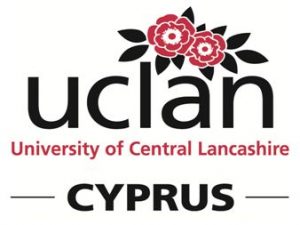 University of Central Lancashire in Cyprus (UCLan CY) is the first British University in Cyprus and an overseas campus of the University of Central Lancashire, UK. UCLan CY is the winner of the 2013 “InAVation Award” for the most innovative education facility, in terms of its technological infrastructure, in Europe, the Middle East and Africa. The COMPASS team at UCLan CY comes from the School of Law and the School of Sciences (Computing Lab, Cognition and Development Lab) and is internationally recognised in Responsible Research and Innovation (RRI), international human rights and ICT for society research. The UCLan CY team are experts in research, innovation and ethics and have thus been involved in a number of European Commission funded global research projects investigating RRI as coordinator or work package leader (e.g. RESPONSIBLE-INDUSTRY, PROGRESS, TRUST).
University of Central Lancashire in Cyprus (UCLan CY) is the first British University in Cyprus and an overseas campus of the University of Central Lancashire, UK. UCLan CY is the winner of the 2013 “InAVation Award” for the most innovative education facility, in terms of its technological infrastructure, in Europe, the Middle East and Africa. The COMPASS team at UCLan CY comes from the School of Law and the School of Sciences (Computing Lab, Cognition and Development Lab) and is internationally recognised in Responsible Research and Innovation (RRI), international human rights and ICT for society research. The UCLan CY team are experts in research, innovation and ethics and have thus been involved in a number of European Commission funded global research projects investigating RRI as coordinator or work package leader (e.g. RESPONSIBLE-INDUSTRY, PROGRESS, TRUST).
“la Caixa” Banking Foundation
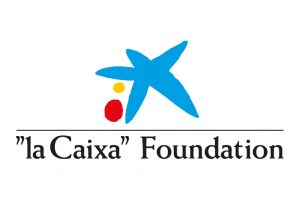 “la Caixa” Banking Foundation (FBLC) is a non-profit organization aiming to contribute to the progress of individuals and society. FBLC is one of the global leading foundations acting in the fields of social welfare, research and innovation, and culture.
“la Caixa” Banking Foundation (FBLC) is a non-profit organization aiming to contribute to the progress of individuals and society. FBLC is one of the global leading foundations acting in the fields of social welfare, research and innovation, and culture.
Among its activities, FBLC runs an extensive “Science in Society” program that reaches three million people every year through its science centre (CosmoCaixa Barcelona), moving exhibitions, the Internet, and television. Since the introduction of the concept of Responsible Research and Innovation (RRI) in the EU, FBLC has devoted increasing efforts to foster and promote this paradigm shift. Examples of such efforts are the European Commission’s funded RRI-Tools project, coordinated by FBLC, the development of the EFC Research Forum Statement on Responsible Research and Innovation, the participation in RRI-related projects such as HEIRRI, the progressive adoption of RRI criteria to transform FBLC’s research funding programs, and the recent launch of the program CaixaImpulse – Innovation for Society to promote the creation of biomedicine-core start-ups.
European Business and Innovation Centre Network
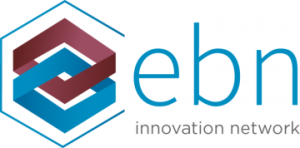 EBN is a network of around 250 organizations that support the development and growth of innovative entrepreneurs, start-ups and SMEs. EBN is also a community of professionals whose day-to-day work helps these businesses to grow in the most effective, efficient and sustainable way. EBN has been involved in a number of projects promoting and facilitating innovation and responsible research conduct in industries (e.g. TRANSITION; InnoMatNet; RRI-TOOLS; INNO INDIGO).
EBN is a network of around 250 organizations that support the development and growth of innovative entrepreneurs, start-ups and SMEs. EBN is also a community of professionals whose day-to-day work helps these businesses to grow in the most effective, efficient and sustainable way. EBN has been involved in a number of projects promoting and facilitating innovation and responsible research conduct in industries (e.g. TRANSITION; InnoMatNet; RRI-TOOLS; INNO INDIGO).
B Lab Europe
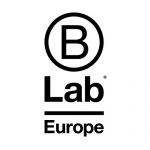 B Lab Europe, the non-profit organization behind the B Corp movement, was founded to serve a global initiative of people using business as a force for good. Its vision is that one day all companies will compete to be “Best for the World” and as a result society will enjoy a shared and durable prosperity. B Lab Europe drives this systemic change through a number of interrelated initiatives: 1) building a community of Certified B Corporations to make it easier for all of us to tell the difference between “good companies” and good marketing; 2) promoting usage of Mission Aligned corporate structures to increase efficacy of social entrepreneurship and impact investing; 3) promoting Measure What Matters campaigns to increase use of free, powerful tools for businesses to measure, compare and improve their social and environmental performance. More than 30,000 businesses already use B Lab‘s free B Impact Assessment while more than 1,600 Certified B Corps from 42 countries and over 120 industries have already joined the growing community of working together toward 1 unifying goal: to redefine success in business.
B Lab Europe, the non-profit organization behind the B Corp movement, was founded to serve a global initiative of people using business as a force for good. Its vision is that one day all companies will compete to be “Best for the World” and as a result society will enjoy a shared and durable prosperity. B Lab Europe drives this systemic change through a number of interrelated initiatives: 1) building a community of Certified B Corporations to make it easier for all of us to tell the difference between “good companies” and good marketing; 2) promoting usage of Mission Aligned corporate structures to increase efficacy of social entrepreneurship and impact investing; 3) promoting Measure What Matters campaigns to increase use of free, powerful tools for businesses to measure, compare and improve their social and environmental performance. More than 30,000 businesses already use B Lab‘s free B Impact Assessment while more than 1,600 Certified B Corps from 42 countries and over 120 industries have already joined the growing community of working together toward 1 unifying goal: to redefine success in business.
Strategic Design Scenarios
 Strategic Design Scenarios is a sustainability innovation lab specialised in strategic design, scenario building, co-design with users, and community centred approaches. Their action-research activities focus on innovation dynamics, participative approaches, sustainable living, collaborative services, design for policies, behavioural change, local development and regional/urban planning. Strategic Design Scenarios SPRL is active in various fields such as responsible sustainable development, deliberative processes, energy use, sustainable cities, public service innovation, emerging uses, interaction design and social inclusion. They have been involved in several facilitation processes regarding new collaborations between private and public actors. SDS was partner in several EU research projects including foresight on the futures of innovation (Innovation Futures), citizens and stakeholder-based deliberative platforms (NANOPLAT; CIMULACT) and forward-looking activities on sustainable ways of living (CORPUS; SPREAD). SDS co-developed and is leading the LUPI, the user innovation lab at the Cite du Design, St Etienne, France. They have also been collaborating with companies like Castorama or Lyonnaise des Eaux in the design of collaborative and sustainable services.
Strategic Design Scenarios is a sustainability innovation lab specialised in strategic design, scenario building, co-design with users, and community centred approaches. Their action-research activities focus on innovation dynamics, participative approaches, sustainable living, collaborative services, design for policies, behavioural change, local development and regional/urban planning. Strategic Design Scenarios SPRL is active in various fields such as responsible sustainable development, deliberative processes, energy use, sustainable cities, public service innovation, emerging uses, interaction design and social inclusion. They have been involved in several facilitation processes regarding new collaborations between private and public actors. SDS was partner in several EU research projects including foresight on the futures of innovation (Innovation Futures), citizens and stakeholder-based deliberative platforms (NANOPLAT; CIMULACT) and forward-looking activities on sustainable ways of living (CORPUS; SPREAD). SDS co-developed and is leading the LUPI, the user innovation lab at the Cite du Design, St Etienne, France. They have also been collaborating with companies like Castorama or Lyonnaise des Eaux in the design of collaborative and sustainable services.

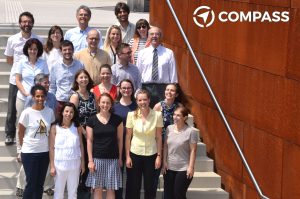
 Roger De Keersmaecker
Roger De Keersmaecker Klaus Leisinger
Klaus Leisinger Sanja Popovic-Pantic
Sanja Popovic-Pantic Virginia Robano
Virginia Robano Maurizio Salvi
Maurizio Salvi Mahmud Samandari
Mahmud Samandari Londa Schiebinger
Londa Schiebinger Charlotte Wagenaar
Charlotte Wagenaar





